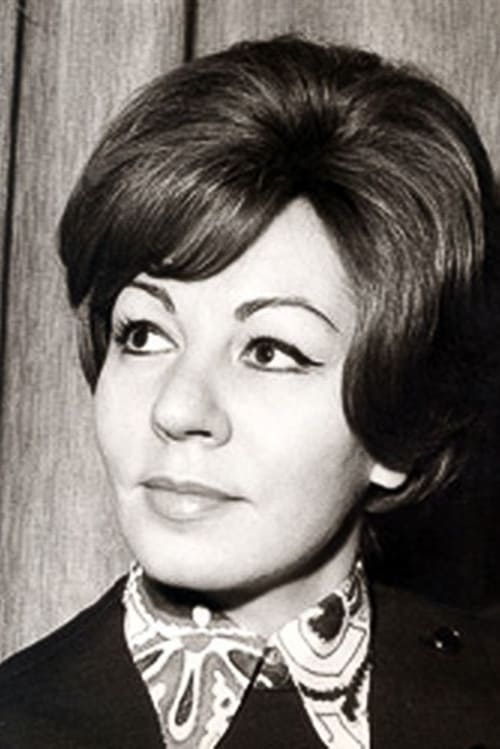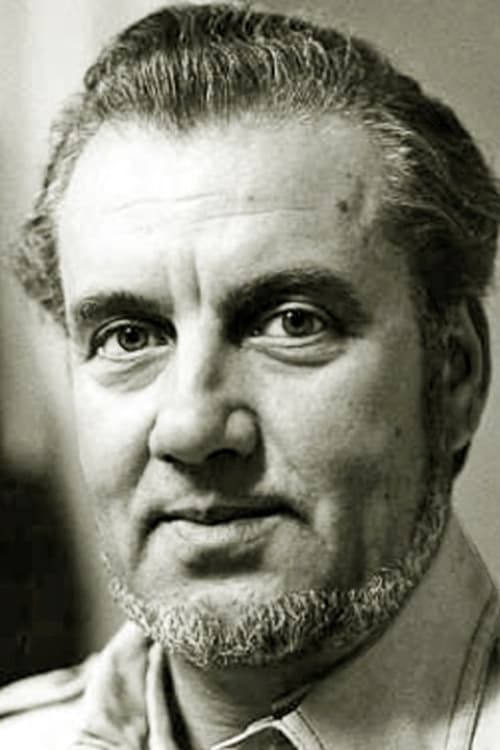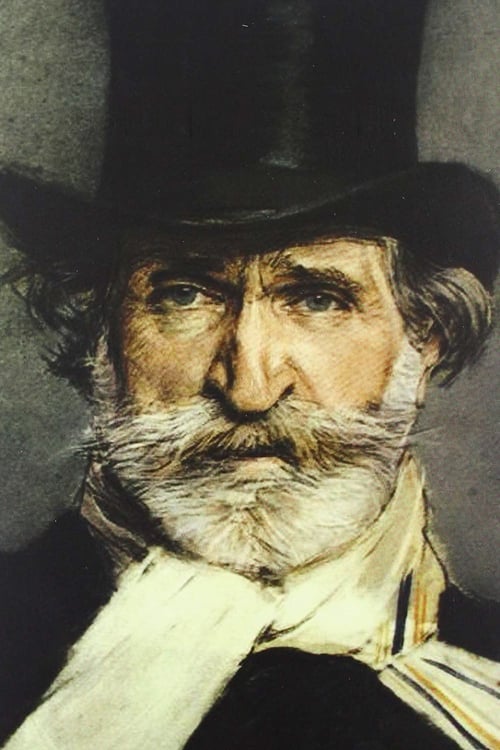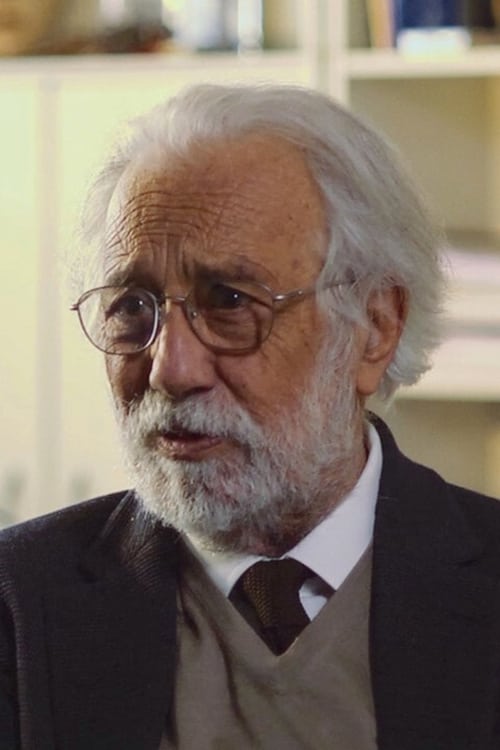Aida (1985)
Gênero : Música
Runtime : 2H 40M
Director : Derek Bailey, Luca Ronconi
Sinopse
La Scala went all out for its 1986 production of this grandest of grand operas, with a strong cast and, most important for a video recording, a larger-than-life staging. The Triumph Scene in Act II is by no means Aida's only attraction, but it is the part that makes the strongest and most lasting impression and it is the visual and musical climax of this production. Stage director Luca Ronconi brings on a procession to dwarf all processions: looted treasures, heroic statuary, miserable captives struggling under the lash of whip-bearing slave drivers. On par with these visuals is Lorin Maazel's first-class performance of the popular Grand March with the outstanding La Scala chorus and orchestra. In Act III, the contrasting tranquility of the Nile Scene also gets a visual treatment to match the music's qualities.
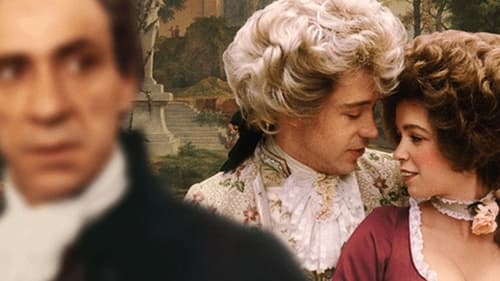
Após tentar se suicidar, Salieri confessa a um padre que foi o responsável pela morte de Mozart e relata como conheceu, conviveu e passou a odiar Mozart, que era um jovem irreverente mas compunha como se sua música tivesse sido abençoada por Deus.
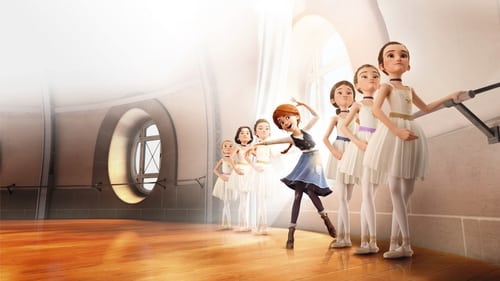
Felicie é uma menina órfã apaixonada pela dança. Ao lado do seu melhor amigo Victor, que deseja se tornar um grande inventor, eles desenvolvem um grande plano de fuga para conseguirem o que querem. Eles fogem do orfanato em que vivem para Paris, a Cidade Luz, onde a torre Eiffel ainda está sendo construída. Felicie terá que se superar e aprender com seus erros para tornar o seu grande sonho em realidade: ser uma grande bailarina da Ópera Nacional de Paris.
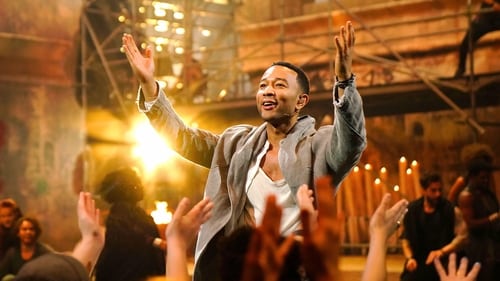
Em sua última semana de vida, Jesus Cristo lida com a traição, o amor e o ciúme. A premiada ópera-rock é contada a partir da perspectiva de Judas Iscariotes e conta com um elenco estelar de grandes artistas.
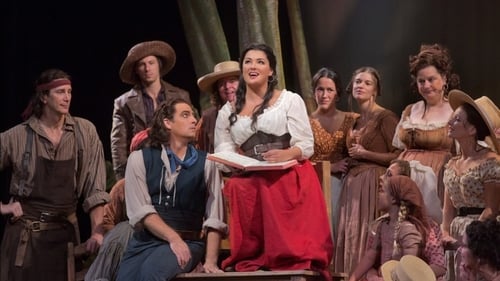
Anna Netrebko as the beautiful and wealthy Adina leads the cast in Barlett Sher’s production of Donizetti’s charming comedy, first seen on Opening Night of the Met’s 2012–13 season. Matthew Polenzani is Nemorino, the poor but good-hearted country boy who wins her love—with the help of the magic “elixir” sold by the quack Dulcamara, played by Ambrogio Maestri. Mariusz Kwiecien is the swaggering Sergeant Belcore and Maurizio Benini conducts.

Florence Foster Jenkins (Meryl Streep) é uma rica herdeira que persegue obsessivamente uma carreira de cantora de ópera. Aos seus ouvidos, sua voz é linda, mas para todos os outros é absurdamente horrível. O ator St. Clair Bayfield (Hugh Grant), seu companheiro, tenta protegê-la de todas as formas da dura verdade, mas um concerto público coloca toda a farsa em risco.
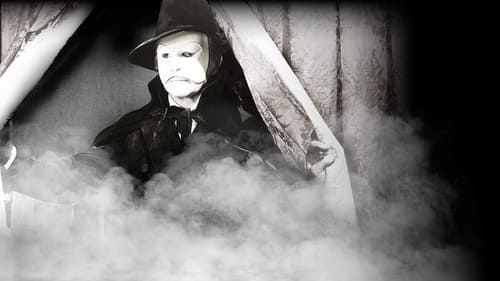
Este imortal e espetacular conto de terror de Gaston Leroux é estrelado por Claude Rains como o mascarado fantasma da Ópera de Paris, um compositor enlouquecido que planeja fazer de uma linda jovem soprano (Susanna Foster) a estrela da companhia de ópera e saciar sua vingança contra os que roubaram sua música. Nelson Eddy, o heróico barítono, tenta obter o afeto da garota enguanto persegue os passos do monstro que começa a matar aqueles que resiste a suas loucas exigências.

Em 1942, um avião da Royal Air Force é abatido sobre uma Paris ocupada pelo exército nazi. Os três pilotos saltam em para-quedas: Peter Cunningham cai nos andaimes de Augustin Bouvet, um pintor da construção civil que está a trabalhar na fachada do comando alemão, Alan Macintosh aterra no telhado da Ópera, durante o ensaio da orquestra, dirigida por Stanislas LeFort, e Sir Reginald mergulha no tanque das focas, no Jardim Zoológico de Vincennes. Enquanto a polícia alemã se lança à sua procura, Stanislas e Augustin ocupam-se dos ingleses, lançando-se nas mais extraordinárias aventuras, para os conduzirem para a zona livre.

Sir David McVicar’s bold new staging of Tosca, Puccini’s operatic thriller of Napoleonic Rome, thrilled Met audiences when it rang in the New Year in 2018. Only weeks later, the production was seen by opera lovers worldwide as part of the Met’s Live in HD series of cinema presentations. In this performance, Bulgarian soprano Sonya Yoncheva is the passionate title diva, opposite charismatic tenor Vittorio Grigolo as her lover, the idealistic painter Mario Cavaradossi. Baritone Željko Lučić is the menacing Baron Scarpia, the evil chief of police who employs brutal tactics to ensnare both criminals and sexual conquests. On the podium, Emmanuel Villaume conducts the electrifying score, which features some of Puccini’s most memorable melodies.
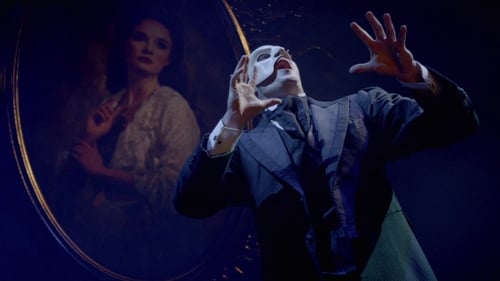
A história se passa 10 anos depois. 0 Fantasma fugiu de Paris e vive em New York entre aventuras inconsequentes e shows de horror de Coney Island. Embora tenha finalmente encontrado um lugar para expressar sua música, ele ainda sente falta do amor de Christine Daaé. Em uma aposta para reconquistá-la, Fantasma atrai Christine, seu marido Raoul, e o filho do casal, Gustave, de Manhattan, para o glorioso e brilhante mundo de Coney Island… mas eles não tem ideia do que os aguarda... Você não pode dizer que conhece Love Never Dies de Andrew Lloyd Webber até ver esta espetacular produção australiana, filmada no icônico Regent Theatre de Melbourne.
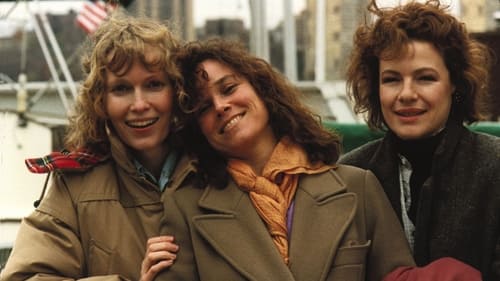
A filha mais velha de um casal de artistas, Hannah, é uma dedicada esposa, mãe carinhosa e atriz de sucesso. Uma leal defensora de suas duas confusas irmãs Lee e Holly, ela é também a espinha dorsal de uma família que parece se ressentir de sua estabilidade quase tanto quanto dependem da mesma. Mas quando o mundo perfeito de Hannah é silenciosamente sabotada pela rivalidade fraterna, ela finalmente começa a ver que está tão perdida quanto todos os outros, e para poder se encontrar, ela terá que escolher entre a independência e ... a família sem a qual ela não pode viver.
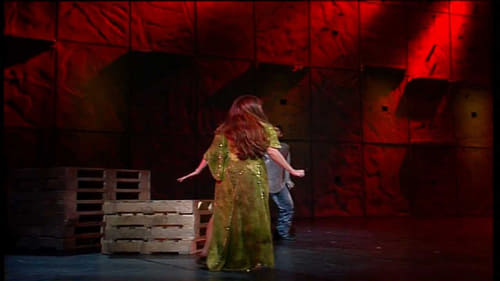
A musical adaptation of Victor Hugo's novel "Notre Dame de Paris" which follows the gypsy dancer Esmeralda and the three men who vie for her love: the kind hunchback Quadimodo, the twisted priest Frollo, and the unfaithful soldier Phoebus.
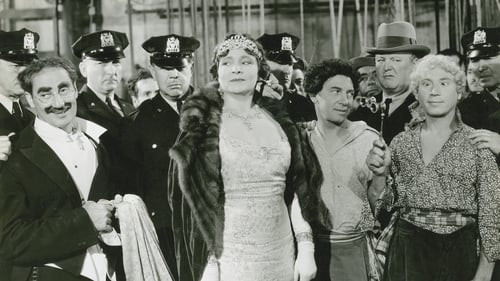
Dois amantes que gostam e trabalham com ópera estão distantes porque o homem não é bem aceito como tenor. Os irmãos Marx, então, fazem com que o tenor normal esteja ausente para o outro ter sua grande chance, através de muitas palhaçadas típicas do grupo.
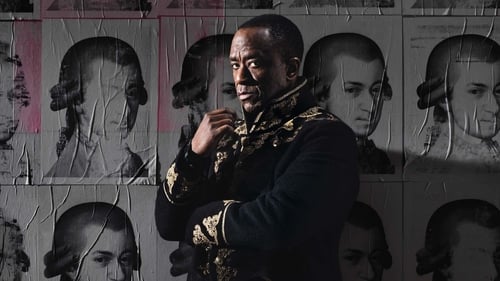
Wolfgang Amadeus Mozart, a rowdy young prodigy, arrives in Vienna, the music capital of the world – and he’s determined to make a splash. Awestruck by his genius, court composer Antonio Salieri has the power to promote his talent or destroy his name. Seized by obsessive jealousy he begins a war with Mozart, with music, and ultimately, with God.
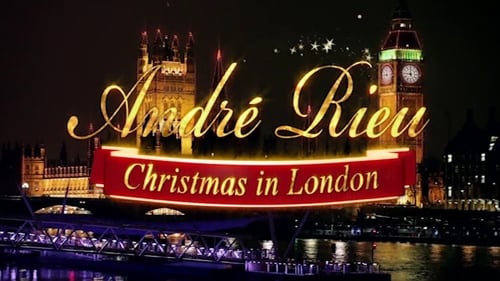
Christmas is now more beautiful and cosy than ever! Experience Christmas in London, together with André Rieu. Decorated Christmas trees everywhere you look, beautifully lit streets, tempting Christmas window displays... Combine the unique London Christmas atmosphere with a magnificent Christmas concert by André Rieu, and you have all the ingredients for a lovely party in the dark December days. Together with fantastic soloists and his always joyful Johann Strauss orchestra, André Rieu provides a fabulous evening with the most beautiful and moving Christmas carols, but also with emotional songs such as Leonard Cohen's Hallelujah, The Holy City and the classic Concierto de Aranjuez. Christmas in London means an evening enjoying lovely music, beautiful costumes and plenty of London cosiness.

In the depths of the Rhine, the three Rhinemaidens guard the Rhinegold, a treasure of immeasurable value. The Nibelung dwarf Alberich is dazzled by the sight of it. The girls explain that whoever wins the gold and forges it into a ring will gain power over the world, but must first renounce love. Frustrated by his unsuccessful attempts to catch one of the girls, Alberich curses love and steals the gold. Wotan, lord of the gods, is reproached by his wife Fricka: he has promised to give Freia, goddess of youth, to the giants Fasolt and Fafner in return for their building a fortress for the gods. When the giants demand their reward, Loge, the god of fire, suggests an alternative payment: the ring Alberich has forged from the Rhinegold, and his other treasures. The giants agree, and Wotan and Loge leave for the Nibelungs’ underground home.

La traviata (Italian: [la traˈviaːta], "The Fallen Woman"[1][2]) is an opera in three acts by Giuseppe Verdi set to an Italian libretto by Francesco Maria Piave. It is based on La dame aux Camélias (1852), a play adapted from the novel by Alexandre Dumas, fils. The opera was originally entitled Violetta, after the main character. It was first performed on 6 March 1853 at the La Fenice opera house in Venice. Piave and Verdi wanted to follow Dumas in giving the opera a contemporary setting, but the authorities at La Fenice insisted that it be set in the past, "c. 1700". It was not until the 1880s that the composer and librettist's original wishes were carried out and "realistic" productions were staged.[3]
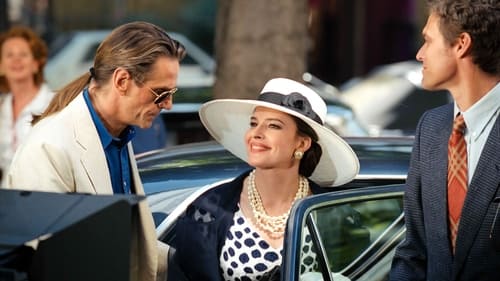
A fictionalized account of the last days of opera singer Maria Callas.
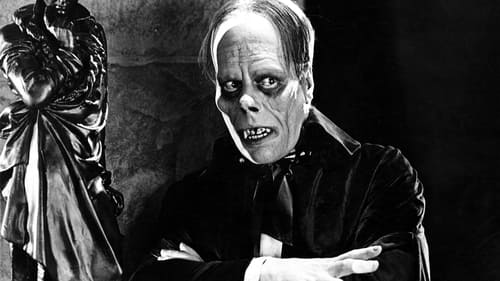
Um compositor grotescamente desfigurado conhecido como o "Fantasma" assombra a casa de ópera de Paris, onde, apaixonado, ajuda secretamente Christine Daae a ser uma diva da ópera. Após atraí-la para seu covil subterrâneo, o Fantasma declara seu amor por ela. Mas Christine ama Raoul de Chagny e planeja fugir com ele depois de sua próxima apresentação. Quando o Fantasma descobre, ele rapta Christine, provocando a ira de Raoul - e uma horda de parisienses raivosos. O filme foi relançado com som, em 1929, usando discos de som da Vitaphone/Western Electric.

Philip Glass’ opera “Akhnaten”, premiered in Stuttgart in 1984, forms the third part of the portrait opera trilogy about personalities who have influenced the course of human history. The conclusion of the trilogy deals with the ancient Egyptian pharaoh Akhenaten, who attempted to establish a kind of monotheistic cult around the god Aton during his reign in the 14th century BC, but failed due to the resistance of the priesthood. The production presented here was undoubtedly one of the very great successes of the 2019/20 season at New York’s Metropolitan Opera, due not only to the outstanding cast of singers (led by countertenor Anthony Roth Costanzo) but also to Phelim McDermott’s imaginative staging, which captivates with sometimes breathtaking imagery.

Considerado a grande obra-prima dos Looney Tunes. Na trama, Elmer eprsegue Pernalonga em uma ópera.

Massenet's opera centres on its charming but contrary heroine, the vivacious young Manon who longs for luxury and excitement. We first encounter her en route to a convent, where her family are sending her to be educated. Along the way, she falls in love with the young student Des Grieux, and, impetuously, runs off with him. She soon leaves him, however, to become the mistress of a rich nobleman. Thus begins her descent into criminality and depravity, all too soon dragging the besotted Des Grieux with her, until she is imprisoned. Despite its tragic story, the opera is full of French charm and vitality – typified by the ambiguous Manon herself. Her plight is touching because of the subtle play of innocence and calculation in her character. The score contains many sparkling arias and ensembles, moving rapidly from moods of exuberance to tenderness, with perfect dramatic timing. Recorded live at the Staatsoper Unter den Linden, Berlin, April/May 2007.

This was a 1988 revival of a 1971 production that teamed Domingo (Vasco da Gama) and Verrett (Selika - both then very much in their prime) in Meyerbeer's discursive swan-song. Seventeen years on, they are more statuesque than sexy, but both give larger-than-life performances that contain moments of completely thrilling vocalism. The casting is very strong, with the exception of Justino Diaz's Nelusko, which has strong presence but not much vocal allure. As Inez, Vasco da Gama's fiancee and rival for Shirley Verrett, Ruth Ann Swneson sings with great beauty and has impressive stage presence, very much holding her own in the confrontation with Verrett in the last act. Domingo is refulgent of tone and dramatically convincing, and he and Verrett strike sparks. She really comes into her own in one of the most preposterous mad-scenes in all opera, where she is slowly poisoned by the scent of a giant tree, contriving to make this dramatically truthful and even moving.

AIDA, an Ethiopian princess, is captured and brought into slavery in Egypt. A military commander, Radamès, struggles to choose between his love for her and his loyalty to the Pharaoh. To complicate the story further, Radamès is loved by the Pharaoh's daughter Amneris, although he does not return her feelings. Sonja Frisell’s production captures all the grandeur and excitement of Verdi’s monumental opera, particularly the great triumphal scene where the Egyptian army, led by Radamès (Plácido Domingo), returns victorious from war. Aprile Millo is Aida, the slave girl whose love for Radamès has her squaring off with Amneris (Dolora Zajick), the Egyptian princess who also loves him. Sherrill Milnes is Amonasro, and James Levine leads The Metropolitan Opera Orchestra, Chorus, and Ballet.
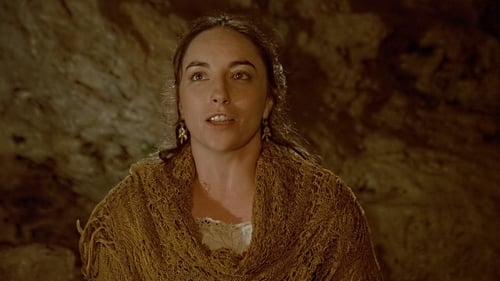
A film version of the famous Bizet opera, where a soldier (Don Jose) falls in love with a beautiful factory worker (Carmen), but she does not reciprocate his feelings.

Verdi’s monumental score is fully the equal of Shakespeare’s famous tragedy—and both demand great actors. This is one performance where both playwright and composer are well served. Plácido Domingo’s Otello is one of the glories of the operatic world, beautifully sung and so commandingly acted that audiences are devastated by the end. Renée Fleming’s ravishingly beautiful Desdemona is deeply moving, and as Iago, James Morris is as beguiling as he is menacing. Under James Levine’s conducting the Met orchestra and chorus are vital characters in the drama.
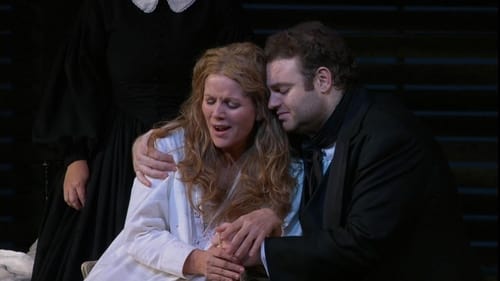
Renée Fleming has matured into one of the finest sopranos around at the moment, a true star with a sparkling personality and a velvet-toned voice that is capable of wringing the finest emotions out of works by Strauss and Tchaikovsky that from a lesser singer could sound rather cold and clinical. I wouldn't have thought her voice would be so well suited to Violetta Valéry in La Traviata, and it does take some getting used to, but I think she at least brings a distinct quality to the role with an emotional heart that isn't always necessarily there when a leading diva uses it primarily as a display for her vocal talents. It's served well also by Antonio Pappano's conducting of the Royal Opera House Orchestra in a traditional, but effective production by Richard Eyre.

